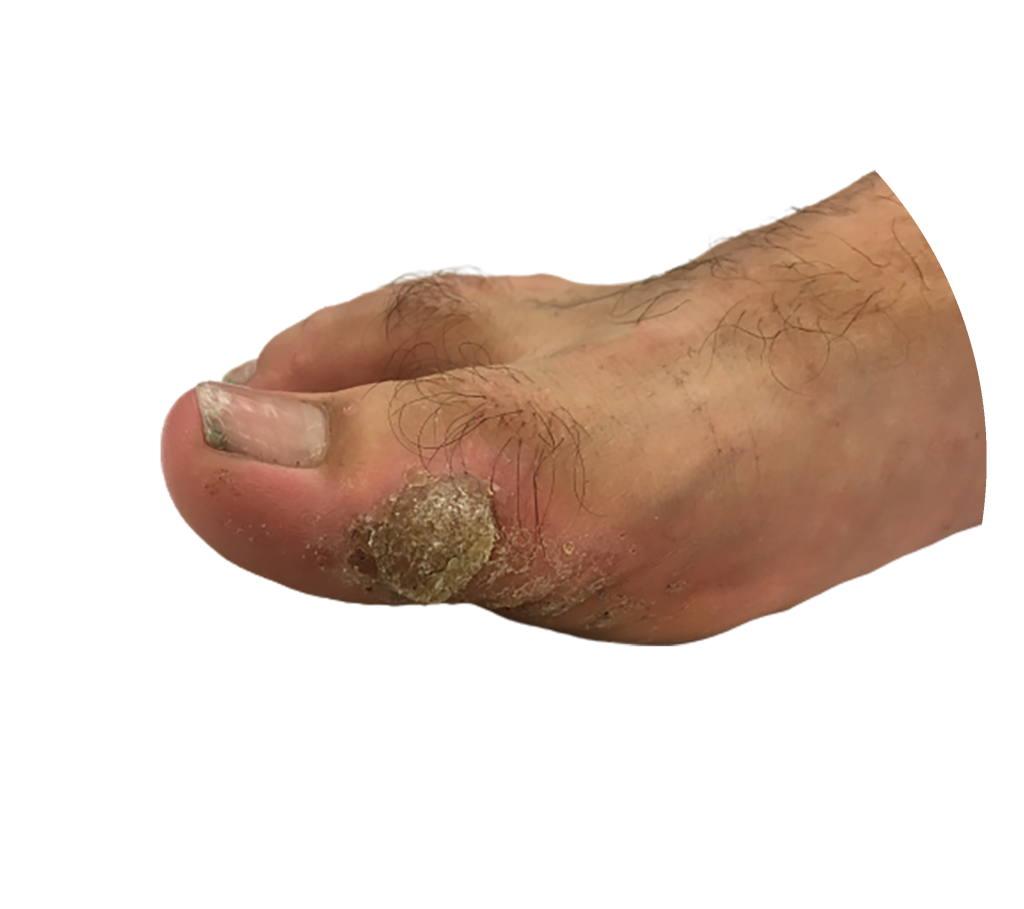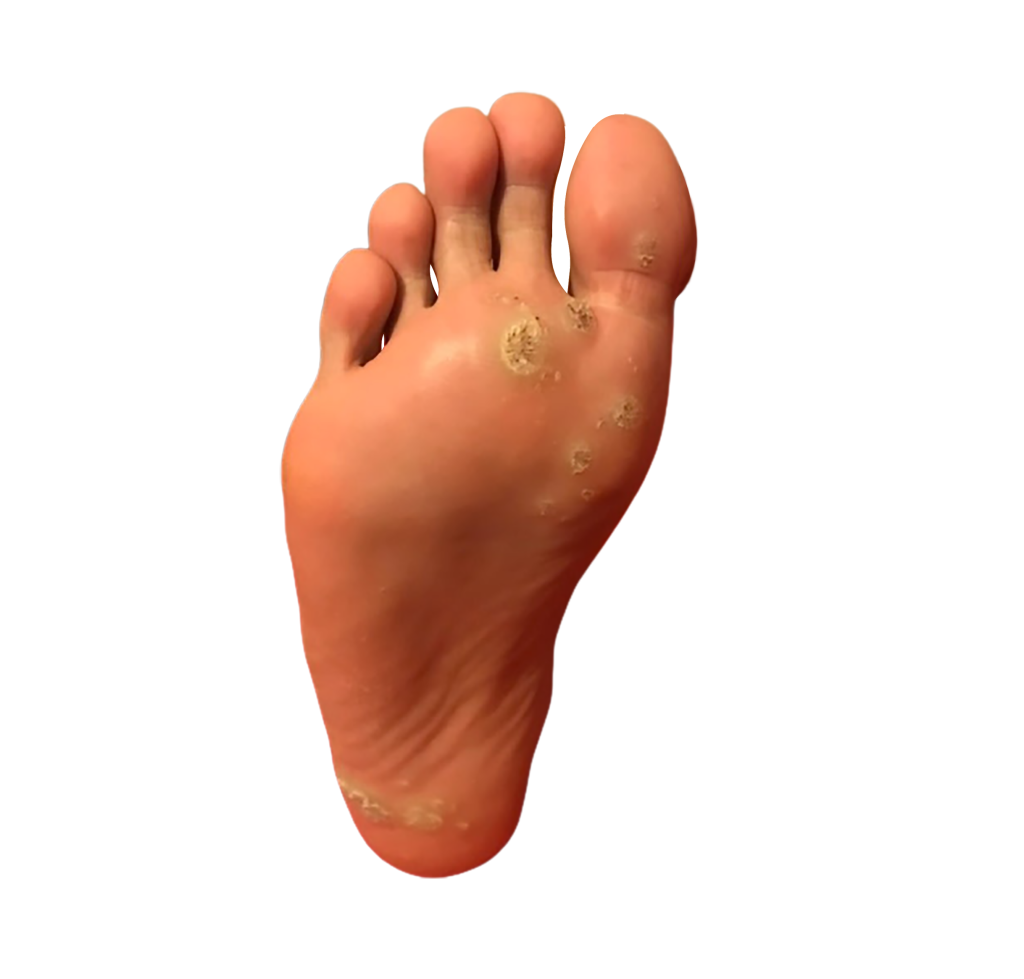Verrucas
What Are Verruca?
There’s a lot to learn if we aim to maintain tip-top, verruca-free toes, so let’s jump right in.
First off, verruca, otherwise known as plantar warts, are no respecters of gender.
They are the arch-enemy of anyone with feet, and they are as common as walnuts
in a box of Walnut Whips. Yet few understand what verruca actually are,
let alone how to avoid catching them. In this chapter, we’ll put verruca under the
microscope and go over some simple precautions to help you avoid becoming a verruca victim.
We’ll also look at treatment options.

Verruca Myths
Before looking at what verruca are, let’s have a quick look at what they’re not. Here are a few of the most common (and not so common) misconceptions about verruca:

| WHAT PEOPLE THINK | THE TRUTH |
|---|---|
| Verrucas have a root | Verrucas are about as rootless as a cloud. No matter what you hear, always remember verrucas do not have a root. |
| Verrucas are inherited | Definitely not. You might inherit your Aunt Pat’s Lalique vase, but you’ll never inherit her verruca. Unlike male-pattern baldness and colour blindness, verrucas are not inherited. |
| Verrucas and Herpes are related | Absolutely not. They are different viruses. Herpes is usually transmitted sexually, whereas verrucas are specifically foot-relate |
| Verrucas are related to cervical cancer | No. No. No. Verrucas are caused by HPV and HPV is linked to cervical cancer,1 but there’s no causal link between verrucas and cervical cancer. |
| Verrucas are corns | Wrong! They may be equally unpleasant, but they are completely different conditions. |
| Weren’t the Verrucas enemies of Doctor Who? They came after the Daleks and before the Cybermen, right? | Wrong! |
| VERRUCA | CORN |
|---|---|
| Caused by a virus | Caused by excessive pressure or friction |
| Painful when pinched | Painful when directly pressed |
| Cauliflower appearance with black dots | Not cauliflower in appearance and no black dots |
| Contagious | Non- contagious |
| Can cluster together to form mosaic verrucas | Do not cluster together |
| Natural skin lines (Striae) go around verruca | Striae in corns go straight across the corns surface |
| Freezing can destroy verrucas | Freezing does not destroy corns |
What is a verruca
Although the word sounds like some mythical character from Game of Thrones,
Verruca are actually small warts. They are easy enough to recognise:
symptoms include white circular patches of abnormally thick skin that
grow on the sole of the foot. Often, they have black spots at their centre,
due to the presence of blood vessels.


Normally, like a prisoner confined to their home by an ankle tag,
verrucas are reasonably well behaved. But if it’s on a weight-bearing
part of the foot, it can be painful and a layer of hard skin is likely to form over it,
making the problem worse. Verrucas are caused by a viral infection and
often spread to other parts of the foot, or form a cluster called a mosaic verruca.
Will verrucas go away without treatment?
Although verrucas may belong in a horror movie (Verruca 2: This time it’s both feet!), most verrucas will eventually disappear of their own accord , with the best chance of a cure in the young who’ve not had their warts for very long . The key word here though is ‘eventually’ — like the boyfriend past his sell-by date but still hanging around for dinner, verrucas tend to overstay their welcome. It’s important to remember, when deciding to treat a verruca, that you will be removing not only a bit of hard skin, but also the baggage of embarrassment, and self-consciousness that often comes with having verrucas.
